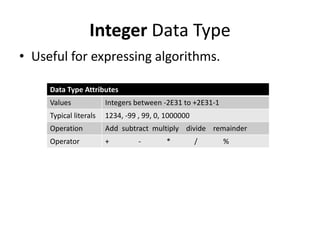

To get our random number, we’ll call the nextInt(int bound) method. We can use the class to create a new random number generator, which we can then use to retrieve a pseudorandom, uniformly distributed int value. The best solution for your needs depends on the application you need random integers to be generated for. We’ll consider the following randomized range integer-generating approaches: Let’s take a look at a couple of solutions that rely on core Java, excluding the numerous third-party libraries offering similar functionality. There are a number of ways to generate random integers confined to a specific range in Java, and the problem is simplified by the several approaches the built-in Java libraries offer. Is there a way to do it in Java? The Solution Since there's a 5% chance that the number is below 0.You need to generate random integers within a specific range. So how does this work? Math.random() returns a random double between 0 (including) and 1 (excluding). if a player should have a 5% chance to get an item and a 5% chance to get another, then the player will either get both or none.

This can cause (and has for me) strange things, eg. However, if the computer didn't notice any time change (usually with less than a millisecond passing), the two Random objects will return exactly the same thing. This is mostly irrelevant because if you have two Random objects, one created today and another one created tomorrow the time will have changed. Whenever you create a new Random object, the random value will depend on the time. The Math.random () method in Java is a static method in the class that returns a random floating-point number between 0.0 (inclusive) and 1. Yep, and it's even the better thing to do for the following reason: Since there's a 5% chance that the number is below 0.05, you can use that for your code: 1.0 is not a posible value with Math.random. 'a pseudorandom double greater than or equal to 0.0 and less than 1.0'. This means that if your random number is 0.99987, then multiplying by 10 gives 9.9987, and integer truncation gives 9. This will guarantee that even when calling it a hundred times in the same nanosecond, it will always return another number. Casting a double to an int in Java does integer truncation. If you use Math.random() however, there'll be a single Random instance for all of your calculations. if a player should have a 5% chance to get an item and a 5% chance to get another, then the player might either get both or none. This can cause (and has for me) strange things, eg. The ThreadLocalRandom class provides the int nextInt(int origin, int bound) method to get a random integer in a range: // Returns a random int between 1 (inclusive) & 101 (exclusive) int randomInt ThreadLocalRandom.current().


Still, doing this is considered bad practice and other implementations might not have one). However, if the computer didn't notice any time change (usually when less than a millisecond passed), the two Random objects might return exactly the same thing (edit 2019: Not 100% accurate, there's a seed uniquifier in the Java default Random implementation to prevent this. If you remove the braces between Math.random()max, you will always end up zero because Java will first cast the double value returned by random() method to. This is usually irrelevant because if you have two Random objects, one created today and another one created tomorrow the time will have changed. Whenever you create a new Random object, the returned value will depend on the current time. Click to expand.Yep, and it's even the better thing to do for the following reason:


 0 kommentar(er)
0 kommentar(er)
